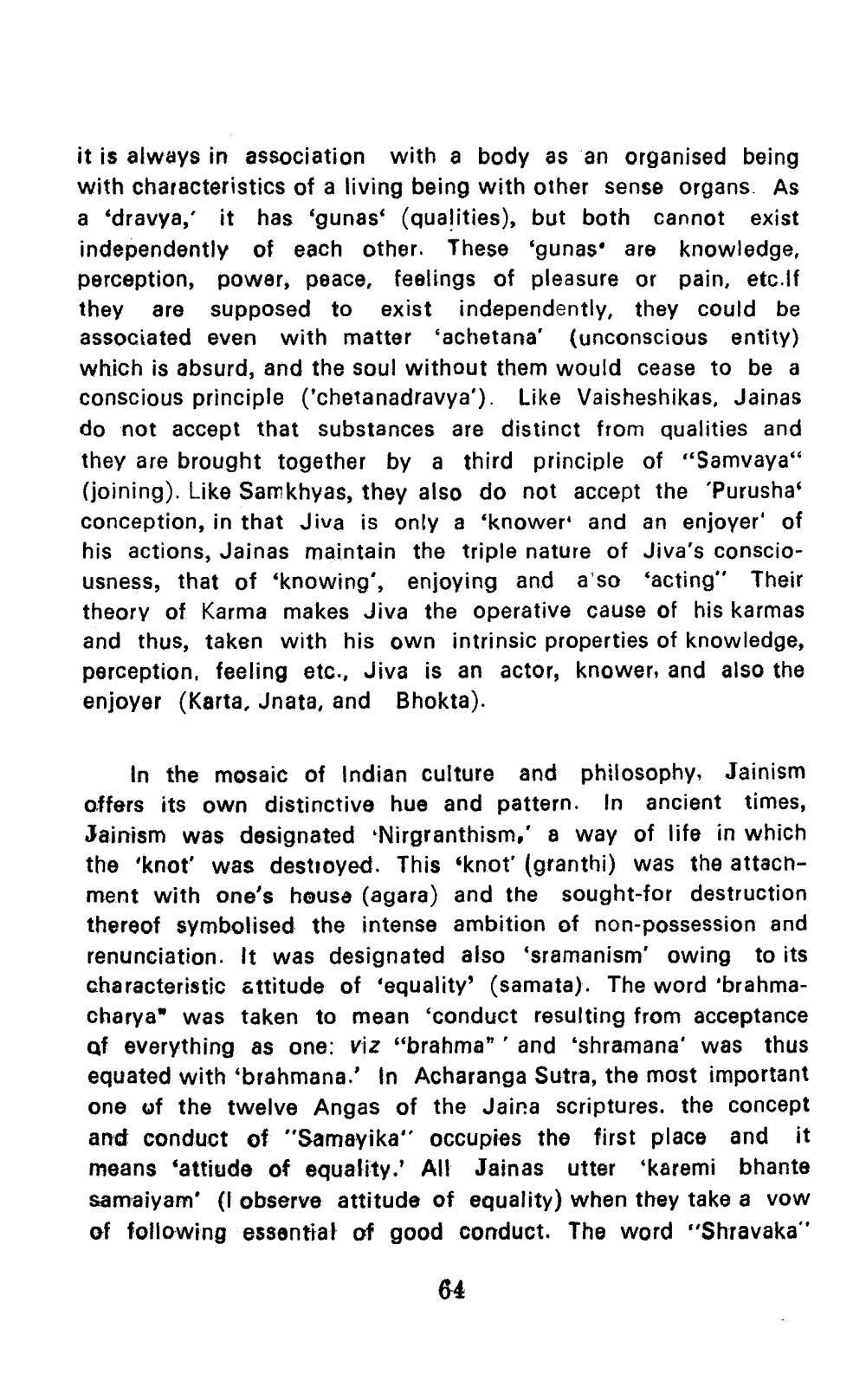________________
it is always in association with a body as an organised being with characteristics of a living being with other sense organs. As a 'dravya,' it has 'gunas' (qualities), but both cannot exist independently of each other. These 'gunas are knowledge, perception, power, peace, feelings of pleasure or pain, etc.lf they are supposed to exist independently, they could be associated even with matter 'achetana' (unconscious entity) which is absurd, and the soul without them would cease to be a conscious principle ('chetanadravya'). Like Vaisheshikas, Jainas do not accept that substances are distinct from qualities and they are brought together by a third principle of "Samvaya" (joining). Like Samkhyas, they also do not accept the 'Purusha' conception, in that Jiva is only a 'knower and an enjoyer' of his actions, Jainas maintain the triple nature of Jiva's consciousness, that of 'knowing', enjoying and a'so 'acting" Their theory of Karma makes Jiva the operative cause of his karmas and thus, taken with his own intrinsic properties of knowledge, perception, feeling etc., Jiva is an actor, knower, and also the enjoyer (Karta, Jnata, and Bhokta).
In the mosaic of Indian culture and philosophy, Jainism offers its own distinctive hue and pattern. In ancient times, Jainism was designated Nirgranthism, a way of life in which the 'knot' was destroyed. This 'knot' (granthi) was the attachment with one's house (agara) and the sought-for destruction thereof symbolised the intense ambition of non-possession and renunciation. It was designated also 'sramanism' owing to its characteristic attitude of 'equality' (samata). The word 'brahmacharya" was taken to mean 'conduct resulting from acceptance af everything as one: viz "brahma"' and 'shramana' was thus equated with 'brahmana.' In Acharanga Sutra, the most important one of the twelve Angas of the Jaina scriptures. the concept and conduct of "Samayika" occupies the first place and it means 'attiude of equality.' All Jainas utter 'karemi bhante samaiyam' (I observe attitude of equality) when they take a vow of following essential of good conduct. The word "Shravaka"
64




